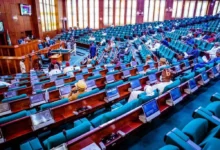
In a bid to ensure fair and efficient distribution of palliatives across all 260 wards in Enugu State, the state government has taken a proactive step by establishing Palliative Distribution Committees. These committees have been entrusted with the crucial task of overseeing the equitable allocation of relief materials to the residents.
The State Palliative Committee, led by Deputy Governor Barr. Ifeanyi Ossai, has formed committees consisting of individuals from different wards. These committees include councillors, clergy members, civil society organizations, and presidents of town unions, among others.
In a compelling address, Ossai, the esteemed figure, fervently urged the committee members to diligently fulfill their duty of ensuring the prompt delivery of the much-needed palliatives to the vulnerable populace residing in all 260 wards of the state.
In a recent statement, it was highlighted by an official that the Governor, Dr. Peter Mbah, has placed great importance on ensuring transparency and accountability in the distribution process. The directive has been given to ensure that the distribution is conducted in a manner that can be openly scrutinized by the public. As part of this effort, the ward committees have been made public, allowing for proper identification and encouraging active participation from all stakeholders.
Across every ward in our state, a palpable awareness exists among the people regarding the dire consequences of removing the fuel subsidy. Particularly, it is the indigent individuals who will bear the brunt of this decision, as their living conditions are expected to be severely impacted. While the removal of [specific action] presents numerous long-term advantages, it is crucial to address the immediate impact and implement measures to mitigate its effects. The state government empathizes with the citizens’ grievances.
In a bid to prioritize the welfare of the less privileged in both rural and urban communities within Enugu State, the government has expressed its commitment to ensuring the effective distribution of all the essential items it is providing. The individuals in question are considered to be the most vulnerable. Committees have been established to ensure the fair and just distribution of resources, with committee members selected from each ward. According to the individual, it is quite simple for people to identify them and closely monitor their activities.














